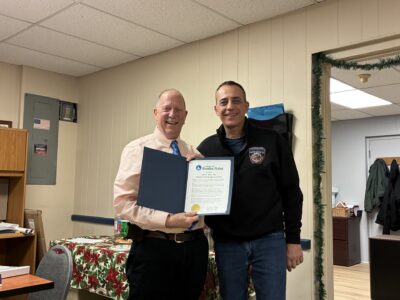Fewer Medicare Choices Offered This Year
Janell Sluga with Lawley Insurance has been working on helping people with their Medicare plans for 20 years, but says this year there has been more difficulty when it comes to Medicare than she has ever seen.
“One of the biggest differences this year compared to previous years is that we’ve had so many plans leave the region,” Sluga said. “We’ve had typically about 60 plans offered in the region and there have been 19 plans that were dissolved. Some of those were reintroduced as different plans and some were not replaced at all, so we’ve lost close to 15 plans.”
Those specific plans are the Medicare Advantage plans, and Sluga said there have also been two Medicare stand-alone drug plans lost as well, which is something she said people use with Medicare, a Medicare supplement, and then a stand-alone drug plan. The Medicare Advantage plans are what are currently impacting the market the most, as she said those are the most popular companies. Companies such as Independent Health have gotten rid of most of their plans and introduced new plans, which is something Sluga said they did both last year and this year. She also mentioned Highmark as another company that got rid of two popular PPO plans, which are meant to help people traveling or who spend part of the year somewhere else, Freedom Nation and Freedom Nation Prestige, which were very popular and had a 48 state network. Freedom Nation has been around for about five years, Sluga said, and Freedom Nation Prestige is something that was brand new.
“There’s more than 100,000 people in Western New York that have lost their insurance in the new year,” Sluga said. “It’s big numbers. There’s approximately more than 364,000 people in Western New York that are eligible for Medicare and more than 100,000 of them have lost their insurance; it’s close to 140,000. That’s more than a third of the population in Western New York that have lost their coverage, which means they have to find new plans. It doesn’t mean that there aren’t plans available, it means they have to find something new.”
Sluga said there are not enough people that handle working with Medicare to meet with all of the people now in need of help finding new plans. At Lawley she said producers, including herself, are working a minimum of 12 hours a day, with most working more than 14 hours a day, six days or seven days a week. She added that not all of that time can be spent reaching out to people due to restrictions in times they are allowed to call — not too early in the morning or too late at night — and so they can only call about 8 a.m. to 8 p.m., with other times spent doing things like making photocopies and getting ready, or cleaning up for the day.
“It’s very demanding, and it’s demanding because people are upset or concerned and worried,” Sluga said. “Nobody likes to have their health insurance go away. Nobody wants that to happen, but it does happen. So those of us that do this; insurance brokers, insurance producers, insurance reps, whatever title they have and if they work for the insurance companies themselves we’re working to help people.”
At Lawley, she said, they are independent insurance agents and are licensed to have the right to sell other insurance products. Lawley does not provide Medicare themselves, and are licensed to sell all Medicare Advantage plans in Western New York, compared to going to other places like Highmark or Univera that can only talk about the plans they themselves provide. This, she added, gives a benefit to places like Lawley where they can put everything out on the table.
“I’ve been working with seniors for more than 30 years in Chautauqua County,” Sluga said. “I’ve been doing just Medicare for more than 20 years. I’ve not always been at Lawley, I was a Geriatric Care Manager before I came to Lawley and I gave that up to come to Lawley and become a licensed insurance agent. But, in doing this since Medicare Part D started in 2006 and before that, this is the most traumatic year we’ve had as far as plans going away and people needing different coverage. This has been the most market disruption I’ve ever seen.”
Choices are also made through internet-based technology, and so Sluga said that adds another stressor for seniors in this situation who may not be internet savvy and need someone to help them. One of the biggest reasons for the change this year, she said, has been the change in how Medicare Part D is covered.
Medicare Part D was introduced in 2003 and started in 2006. It was not until recent years that there was a limit on how much someone can spend in a year, and in 2025 Sluga said that limit was lowered to $2,000, meaning that the maximum out of pocket that people can get for medications covered by prescription drug coverage in 2025 is $2,000. Once that amount is hit they no longer get copays for any medications for the remainder of the calendar year. In 2026 that is projected to be $2,100.
“Insurance companies have a lot more liability for prescription drug coverage in 2025 and 2026 than they’ve ever had before,” Sluga said. “So that increased liability has led to higher premiums and has led to some products leaving the market.”
The other reason Sluga said they are being told for this market disruption is the overall cost of healthcare in the United States, and as people age they become more likely to have medical problems and expenses, so that increase in cost and usage means insurance companies will pay a lot more, giving them more risk associated with the aging population.
Sluga added that Chautauqua County does have a relatively high aging population. According to the Chautauqua County Department of Planning and Development, the current population of Chautauqua County over the age of 65 is 21%, which is believed to be another reason for premiums going up. Another impact in WNY is Roswell no longer being in network for Independent Health or many Highmark Plans, and Sluga said Roswell is seen by many as an important part of people’s medical plans in the area. For many in the area people are losing or changing their coverage, so their expenses are changing, and they are also affected by things such as the closing of Rite-Aid. Sluga said people need to evaluate their insurance, which is something not done by a lot of people on an annual basis, with most letting it roll over. There is a high demand this year, and adding to that the ongoing stresses of things such as the government shutdown and other ongoing factors, Sluga said people are stressed about their insurance and they are seeing a lot more anxiety and a demand to evaluate their insurance.
There is a restricted time frame for evaluation of insurance plans from Oct. 15 to Dec. 7 for most, though for people who have been affected by discontinued plans there is an additional opportunity from Dec. 8 to Feb. 28 for evaluation and enrollment in a plan. Sluga encouraged people to do this before February, as if they evaluate it now it will start by Jan. 1, and that if they do not they will just have certain parts in the new year. If they enroll in January, full coverage will not start until February, and they will spend January with no drug coverage or secondary coverage, and if they wait until February it will not start until March.
“If you have gone to someone in the past to help you with your insurance, reach out to them,” Sluga said. “If they can’t fit you in, find someone new. If you have a family member who helps you, get with that family member. If you go to the Office of the Aging, if you go to the Statewide Senior Action Council, if you go to Southwestern Living Center, all of those nonprofits that help with this, definitely reach out to them. If you are reading this in November and you still haven’t reached out, you’re going to have a hard time getting an appointment, because we are fully booked through December 7.”
Appointments are being taken after Dec. 7 for those who have lost their coverage, but Sluga added people can also use the resource medicare.gov, or their own insurance company, or they can also call 1-800-Medicare. Sluga encouraged people to seek help from family members or an insurance agent as well if needed.
“Nobody wants to be without insurance,” Sluga said. “We don’t want people to be without insurance, but we also know there’s only so many hours in the day for us. It is stressful for everybody, super stressful. In a perfect world, what I would like is for people to be allowed to change their healthcare any time they want or maybe limit it to twice a year if you have Medicare, but that’s not the regulation.”
Sluga said the most important thing people should do is read their mail from the insurance company, as that is how they will know if their plan has been discontinued. By October 1 if someone has Medicare, the insurance company will have notified them about what they are doing for the coming year, so those on Medicare will have gotten the notification already that will tell them what their plan is doing, all the details, and if the plan is going away. This is called the Annual Notice of Change, Sluga said, and if someone did not pay attention or look at it they need to go back and look, as that will give them the best indication of what is happening with their plans in the new year and allow them to reach out to someone if they need a new plan. Sluga acknowledged that so much junk and spam mail is received people have a tendency to ignore these types of letters because it is hard to tell the difference.
“I want people to know that it is important to evaluate their decisions,” Sluga said. “It’s important to evaluate your insurance every year. This year is probably more important than many, because in past years people could just let it roll over. There are a number of plans that did not change a lot, so this year there are a lot of people not changing their insurance because their coverage works so they don’t have to change.”
Sluga said this is something people should not put off, encouraging them to begin thinking about it around back-to-school sales and not around Thanksgiving time, and preferably before the snow flies. She expressed that she loves what she does and finds it a privilege to help people understand insurance, especially as she said insurance is a different language for most.
For more information or resources on Medicare, visit medicare.gov or the Medicare Rights Center’s website, medicarerights.org. For more information on Lawley Insurance, visit lawleyinsurance.com.





